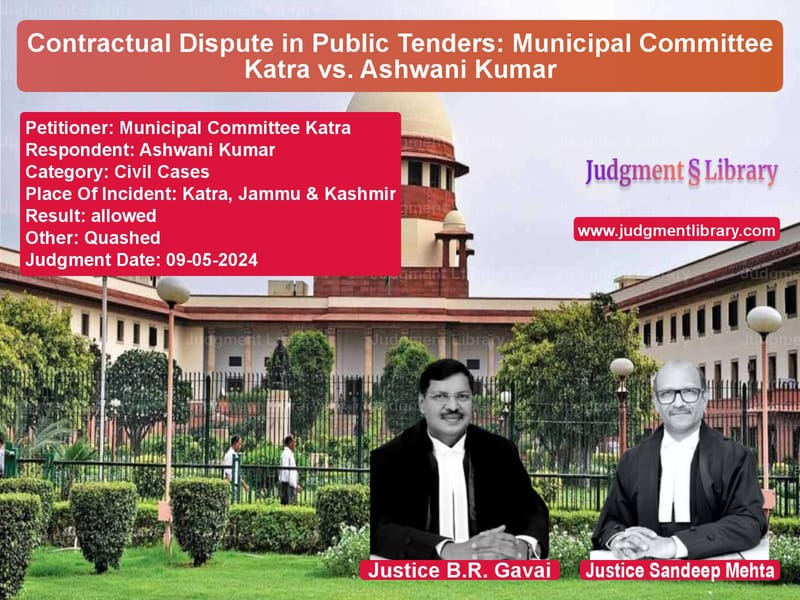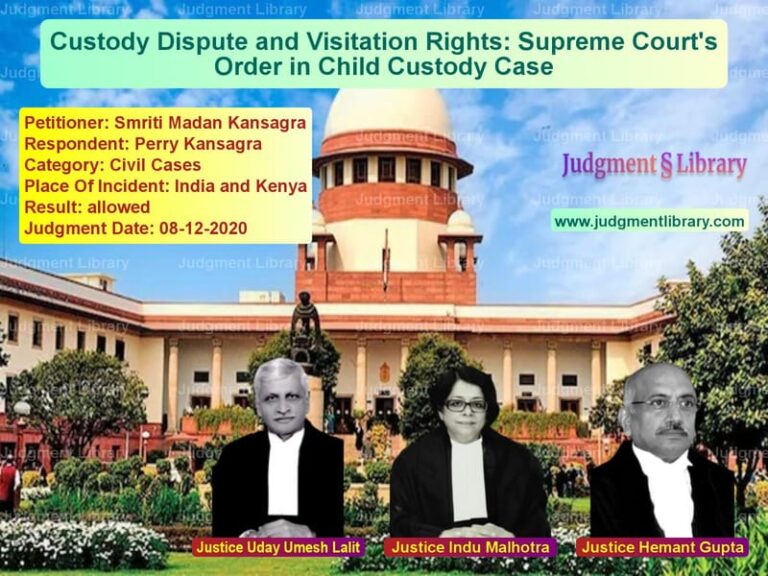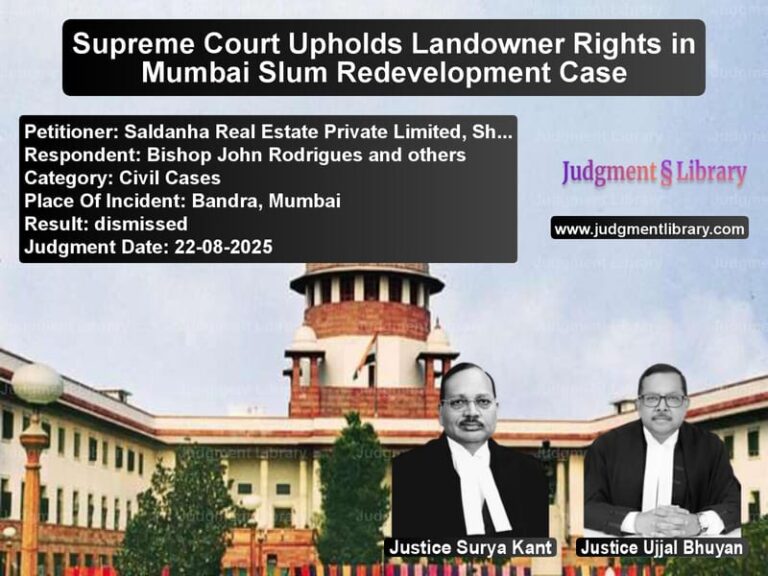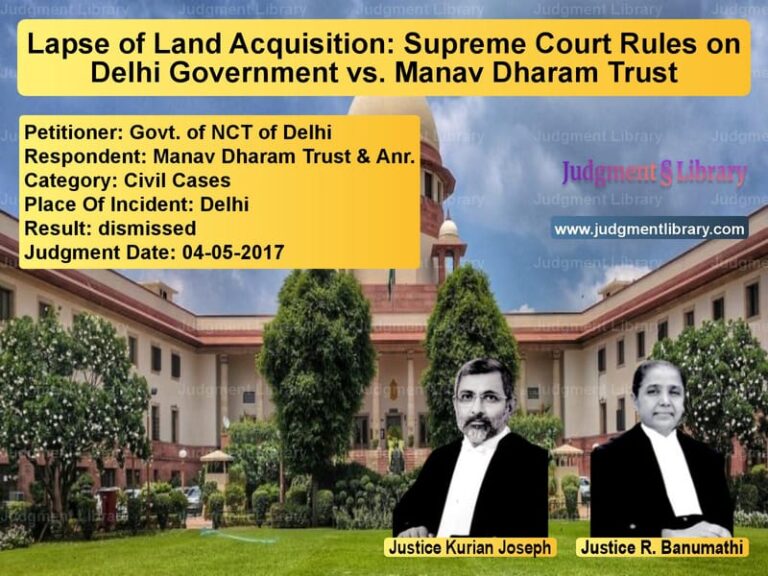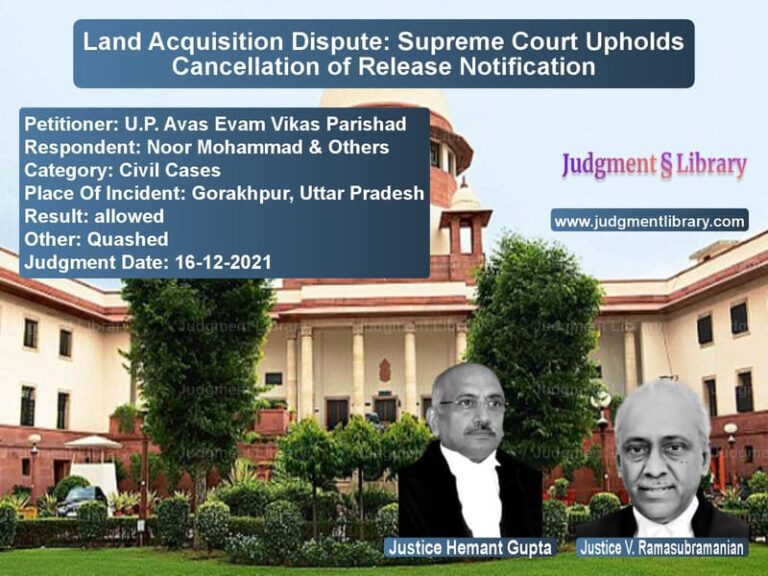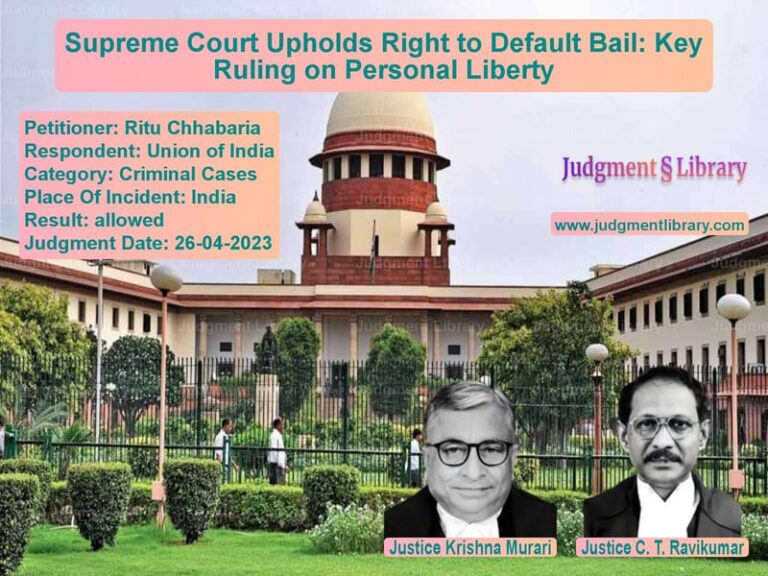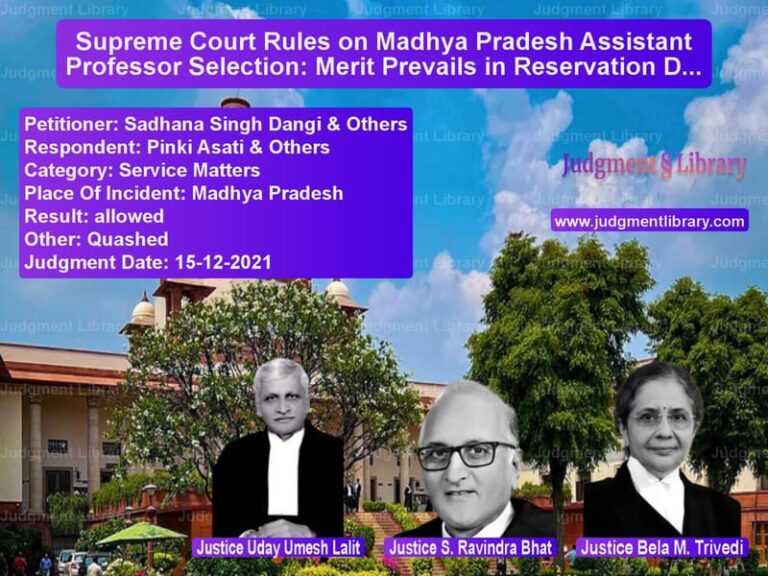Contractual Dispute in Public Tenders: Municipal Committee Katra vs. Ashwani Kumar
The case of Municipal Committee Katra vs. Ashwani Kumar is a significant ruling addressing the question of whether a dispute arising purely out of contractual obligations can be entertained under writ jurisdiction. The Supreme Court’s verdict in this matter sets an important precedent on the limitations of invoking Article 226 of the Constitution of India in contractual disputes.
This case stems from a contractual agreement between the Municipal Committee Katra and Ashwani Kumar for providing transportation services for pilgrims to the Mata Vaishno Devi shrine. The dispute revolved around the enforcement of contract terms and subsequent claims for damages due to alleged losses suffered by the respondent.
Background of the Case
The dispute arose when the Municipal Committee Katra issued a Notice Inviting Tender (NIT) on 3rd March 2010 for transportation services in Katra, Jammu & Kashmir. The tender was to facilitate the movement of pilgrims between Katra and the holy shrine of Mata Vaishno Devi. Several bidders participated in the process, and Ashwani Kumar emerged as the second-highest bidder. Since the highest bidder, Shri Pritam Das, failed to execute the contract, Kumar was awarded the contract under the terms of the NIT.
The terms of the contract required the successful bidder to deposit 40% of the bid amount within 24 hours and provide five post-dated cheques along with a bank guarantee for the remaining amount. These requirements were specified under Clause-8 of the NIT. However, Kumar raised objections, arguing that these conditions were unjust and sought their relaxation from the Municipal Committee. Upon failing to obtain relief, he filed a civil suit challenging the legality of Clause-8.
Legal Proceedings and Timeline
The legal battle went through multiple stages:
- April 29, 2010: The District Judge, Reasi, granted an interim injunction directing the Municipal Committee to issue the work order.
- May 7, 2010: The High Court of Jammu & Kashmir upheld this decision and ordered the Municipal Committee to issue the work order.
- May 10, 2010: Following the High Court’s direction, the work order was issued, and Kumar commenced operations.
- April 7, 2011: The contract period ended, including an extension granted by the High Court.
- July 3, 2013: Kumar filed a writ petition (OWP No. 743 of 2013) seeking compensation for the period he was unable to operate.
- August 12, 2013: The Executive Officer of the Municipal Committee rejected Kumar’s claim.
- February 20, 2015: The Single Judge Bench ruled in Kumar’s favor, directing compensation.
- September 30, 2015: The Division Bench dismissed the Municipal Committee’s appeal.
Key Arguments
Arguments by the Petitioner (Municipal Committee Katra)
The Municipal Committee contended that:
- Kumar was fully aware of Clause-8 when he participated in the auction.
- Instead of complying with contractual obligations, he sought to challenge its legality post-bidding.
- His refusal to provide post-dated cheques and a bank guarantee delayed the contract’s execution, leading to his own financial losses.
- The High Court was incorrect in granting relief under writ jurisdiction as the dispute pertained solely to a contractual matter, which should have been resolved through civil courts.
Arguments by the Respondent (Ashwani Kumar)
Kumar countered that:
- He was awarded the contract for a period of 365 days, but the delay in execution reduced it by 33 days.
- During the lost 33 days, the Municipal Committee operated the service and profited from it, creating an instance of unjust enrichment.
- The principle of a welfare state prohibits the government from profiting unfairly at the expense of a citizen.
- He had paid the full auction amount but was not given the full period to operate, warranting compensation.
Supreme Court’s Judgment
The Supreme Court ruled in favor of the Municipal Committee Katra, setting aside the High Court’s judgment. The Court emphasized the principle:
“A wrongdoer ought not to be permitted to make a profit out of his own wrong.”
The Court found that:
- Kumar voluntarily participated in the auction but later sought to alter its conditions.
- His refusal to comply with Clause-8 caused the delay in issuing the work order.
- The High Court overstepped its jurisdiction by granting compensation in a writ petition instead of directing the parties to pursue a civil suit.
- Monetary claims arising from contracts should be adjudicated in civil courts, not through extraordinary writ jurisdiction.
Key Legal Precedents
The Supreme Court cited several important precedents, including:
- Union of India vs. Maj. Gen. Madan Lal Yadav (1996) 4 SCC 127: No one can benefit from their own wrongdoing.
- Union of India vs. Puna Hinda (2021) 10 SCC 690: Writ petitions should not be used for contractual disputes involving disputed facts.
Conclusion
The judgment reinforces that disputes stemming from purely contractual obligations cannot be adjudicated under writ jurisdiction. The Supreme Court’s ruling prevents parties from circumventing established legal channels for damages and monetary claims. The ruling upholds the principle that contractual disputes should be settled in civil courts, not through extraordinary judicial intervention.
Petitioner Name: Municipal Committee Katra.Respondent Name: Ashwani Kumar.Judgment By: Justice B.R. Gavai, Justice Sandeep Mehta.Place Of Incident: Katra, Jammu & Kashmir.Judgment Date: 09-05-2024.
Don’t miss out on the full details! Download the complete judgment in PDF format below and gain valuable insights instantly!
Download Judgment: municipal-committee-vs-ashwani-kumar-supreme-court-of-india-judgment-dated-09-05-2024.pdf
Directly Download Judgment: Directly download this Judgment
See all petitions in Contract Disputes
See all petitions in Damages and Compensation
See all petitions in Judgment by B R Gavai
See all petitions in Judgment by Sandeep Mehta
See all petitions in allowed
See all petitions in Quashed
See all petitions in supreme court of India judgments May 2024
See all petitions in 2024 judgments
See all posts in Civil Cases Category
See all allowed petitions in Civil Cases Category
See all Dismissed petitions in Civil Cases Category
See all partially allowed petitions in Civil Cases Category

